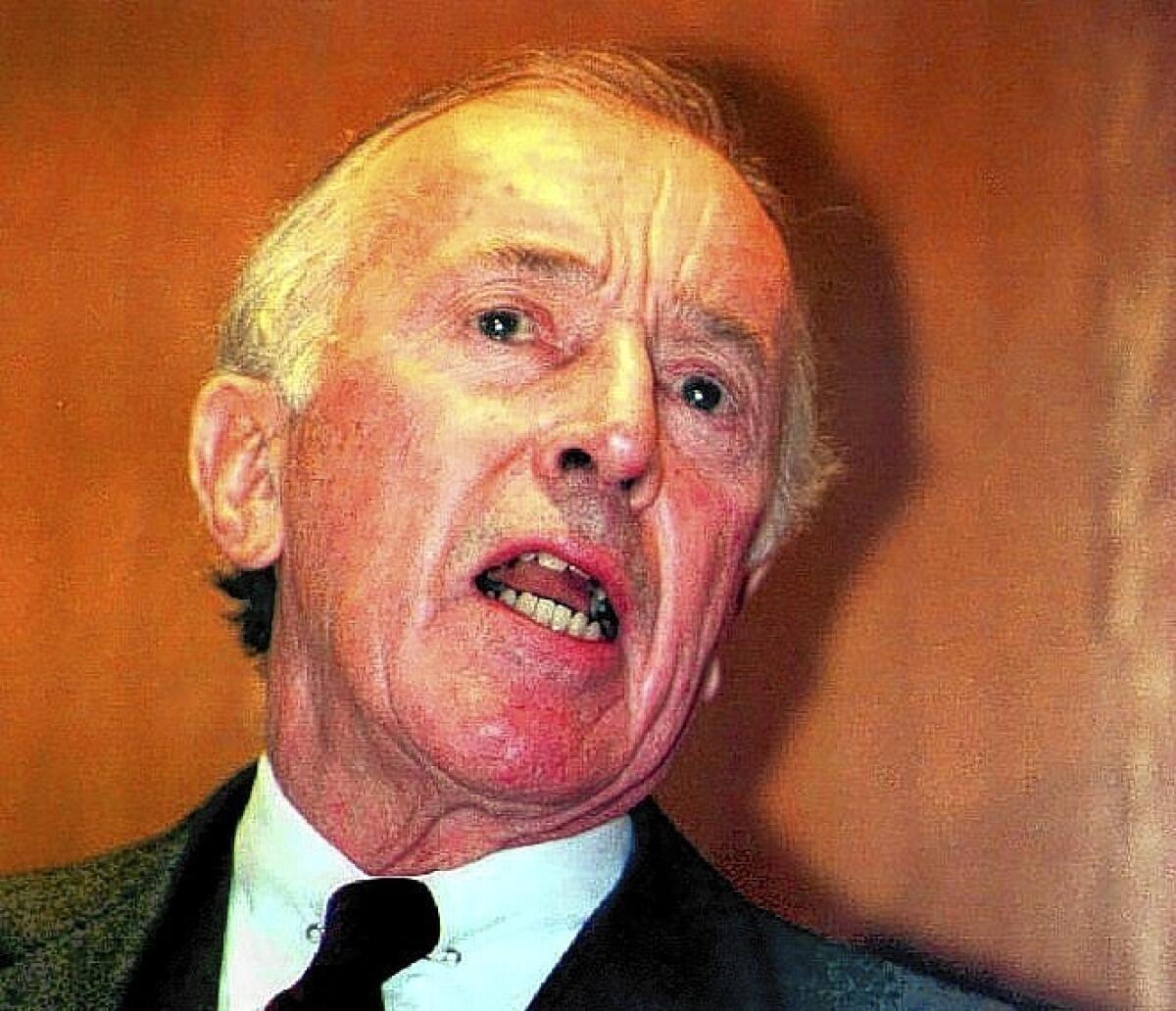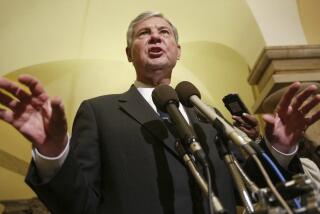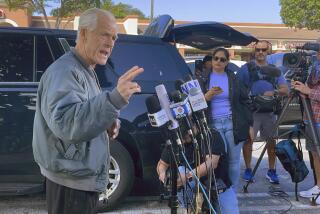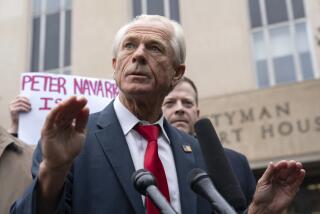Lawrence E. Walsh dies at 102; Iran-Contra independent prosecutor

Lawrence E. Walsh, a former federal judge and Wall Street lawyer who spent a frustrating seven years as the independent counsel investigating misconduct by Reagan administration officials in the Iran-Contra affair, died Wednesday at his home in Oklahoma City after a short illness, his family said. He was 102.
Walsh undertook the controversial job when he was 75 and semi-retired from a career that began in the mid-1930s, when he prosecuted racketeering in New York City. The Republican later was appointed to the federal bench, served as president of the American Bar Assn., and was No. 2 in President Eisenhower’s Justice Department before spending two decades with the powerful law firm of Davis, Polk & Wardwell.
But the highest-profile work of his life was overseeing the Iran-Contra case, the biggest scandal to hit Washington since Watergate. As the court-appointed independent counsel, he relentlessly pursued evidence of wrongdoing in an investigation that cost $37 million but was ultimately thwarted, according to his final report, because government officials destroyed and withheld thousands of documents.
Along the way, Walsh accumulated detractors, including Sen. Orrin Hatch (R-Utah), who accused him of “criminalizing policy differences,” and former Marine Lt. Col. Oliver North, who called him a “vindictive wretch.”
Like Watergate, Iran-Contra was a Washington spectacle with clashes between the executive and legislative branches of government, televised congressional hearings, an imperiled presidency and an alleged criminal coverup.
“I found myself at the center of a constitutional maelstrom,” Walsh recalled in his 1997 book, “Firewall: The Iran-Contra Conspiracy and Cover-Up.”
The scandal arose from two covert operations directed from the Reagan White House and conducted without the knowledge or approval of Congress.
The first operation involved the secret supplying of weapons to the Contra rebels in Central America, who were seeking to overthrow the leftist government of Nicaragua. At the time, Congress had barred the CIA and the Pentagon from providing military aid to the rebels.
The second operation was the secret sale of anti-tank missiles and spare parts for Hawk anti-aircraft missiles to Iran in an effort to free U.S. hostages held in Lebanon. Iran, which was fighting a war with Iraq, was thought to possess some influence over the kidnappers.
The White House linked the two operations by secretly diverting millions of dollars from the Iran arms sales into buying guns for the rebels in Central America.
When the diversion was exposed in late 1986, a political firestorm was ignited that left the Reagan administration with little choice but to call for a criminal investigation by a wholly independent prosecutor. A panel of three federal appeals judges chose Walsh.
Eleven people pleaded guilty or were convicted by juries in Iran-Contra. But the two biggest courtroom victories for Walsh’s prosecutors — convictions of North and his boss, National Security Advisor John M. Poindexter — were overturned on appeal after Congress granted them limited immunity in exchange for their testimony in nationally televised hearings.
The biggest case of all, that of Defense Secretary Caspar Weinberger, never came to trial because President George H.W. Bush pardoned him and five other Iran-Contra figures on Christmas Eve 1992, two weeks before Weinberger’s trial was to start.
The pardons infuriated Walsh.
“The Iran-Contra coverup, which has continued for more than six years, has now been completed,” Walsh said.
He also concluded that President Reagan had “at least acquiesced” in the efforts to keep the misconduct under wraps, but Walsh acknowledged in his final report in 1994 that he had found no credible evidence that the president had broken the law.
In the end, only one person — a retired CIA officer who helped deliver weapons to the Contras — was sent to prison.
Walsh was born Jan. 8, 1912, in the Canadian province of Nova Scotia. His family moved to New York City when he was a young child. He graduated from Columbia University in 1932 and earned his law degree there in 1935. One of his early mentors was Thomas E. Dewey, New York’s district attorney and later governor.
Until Iran-Contra, Walsh’s career had only two major brushes with controversy: when he headed the American Bar Assn. panel that approved President Nixon’s Supreme Court nomination of Clement F. Haynsworth Jr. in 1969 and G. Harrold Carswell in 1970, both rejected by the Senate; and later when he returned to private practice and defended the manufacturer of Bendectin, a morning-sickness remedy that was ultimately taken off the market for causing birth defects.
Widowed twice, Walsh is survived by five children, four grandchildren and two great-grandchildren.
More to Read
Start your day right
Sign up for Essential California for the L.A. Times biggest news, features and recommendations in your inbox six days a week.
You may occasionally receive promotional content from the Los Angeles Times.






